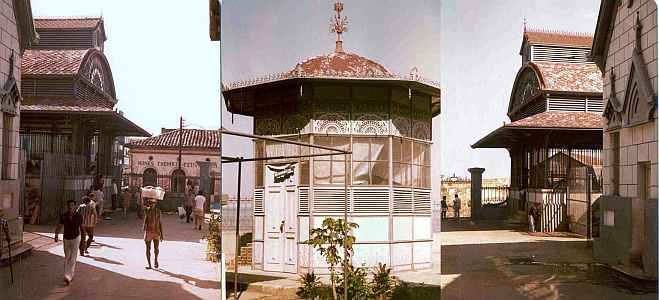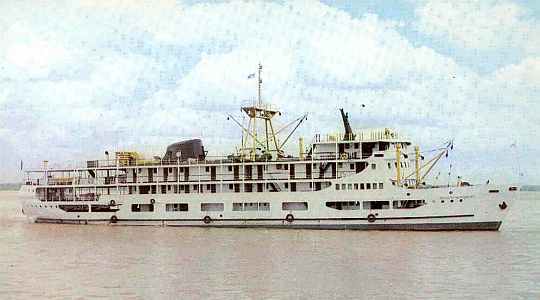Brazil - The Making of a Novel - Part 31
Traveling from Manaus to Porto Velho again underlined the poor attempt at “conquering” the forest — the pathetic little farms alongside the road, the road itself tarred but in a state of disrepair. Almost like traveling on a dirt road, the bus swerving from one side to the other to avoid potholes and sections of the road that have completely degraded.
Atmosphere is pioneer, perhaps no better typified as in roadside “restaurants” - crude, wooden affairs catering to buses and truckers, serving one or two dishes only, great piles of food, rice, spaghetti, farina, chicken or beef, and stocked with only bare essentials.
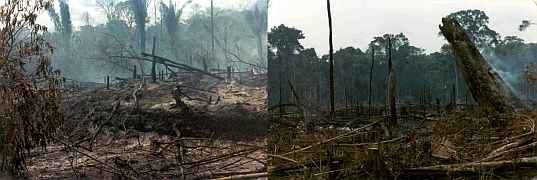
Found sight of smoldering embers of destroyed forest beside road disturbing; nothing seen thus far has convinced me settlers know what they're doing.
As one informant said: they clear thousands of hectares adjoining the forest for cacão plantation and introduce cacão trees. What they ignore is forest's own defense mechanism:
Will it introduce new species of insect or disease to fight this invasion of its territory?
I like this concept of forest as a separate, living entity existing by and for itself, something surrealistic, but need to see it as such to reflect on its relationship with man.
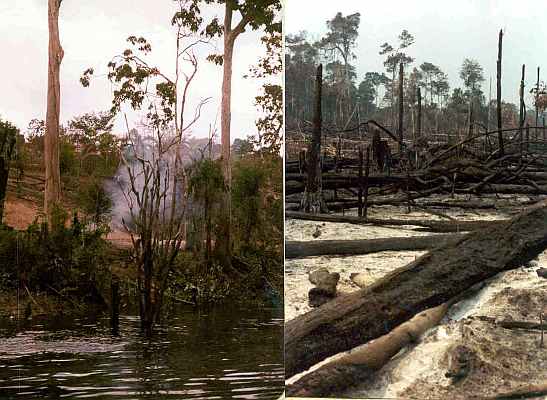
In a small town like Porto Velho, you cannot help noticing excessive number of government organizations. In the downtown area virtually every street has its EMBRATEL, INCRA, INDECO, SUDENE etc - endless offices of functionaries all aiming at one or another type of disinvolvemente. (A strange word to my ears, for translated it means development; having seen some of these functionaries in action you wonder just how much "disinvolvement" gets done.)
At last, the Madeira-Mamoré railroad. Strange feeling of unreality today accentuated by sight of swimming pool, good food (!)and out in Porto Velho's blazing hot rail yard: abandoned engines and rail construction equipment, birds nesting in a great steam powered crane that once moved along the newly-laid rails.
As in Recife, Belém, Manaus, much of the historical atmosphere has been destroyed. It takes a special effort of imagination to recapture what it must've been like - to envisage it in the days of Vicente Cardoso (Cavalcanti.) Feel especially confident of Vicente as character and almost capable of writing about him now.




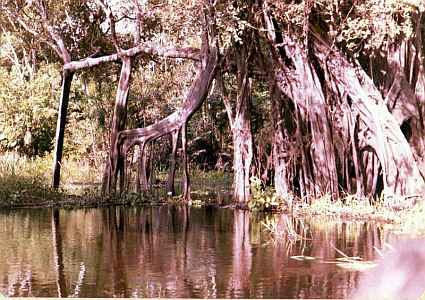 real. I think many Amazon “adventures” were shot in California backlots showing a density and height that's not right. The greatness of the Amazon lies in its horizontal and not vertical spread; its sheer size and variety is what gives it an awesome aspect. Under the canopy, you can let your imagination drift back to the very beginnings of earth.
real. I think many Amazon “adventures” were shot in California backlots showing a density and height that's not right. The greatness of the Amazon lies in its horizontal and not vertical spread; its sheer size and variety is what gives it an awesome aspect. Under the canopy, you can let your imagination drift back to the very beginnings of earth.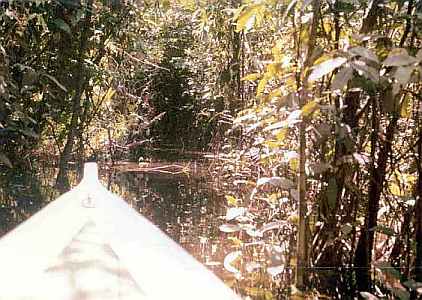 impossibility once you enter area to find clean water.
impossibility once you enter area to find clean water.
 and found a personable navigator — Daniel! Six hour trip to confluence of Amazon and Negro, then into Solimões and through narrow creeks to enter cathedral-like forest. Exactly what I wanted.
and found a personable navigator — Daniel! Six hour trip to confluence of Amazon and Negro, then into Solimões and through narrow creeks to enter cathedral-like forest. Exactly what I wanted.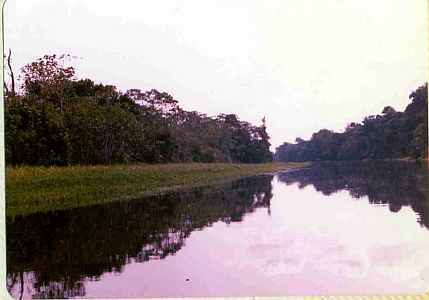
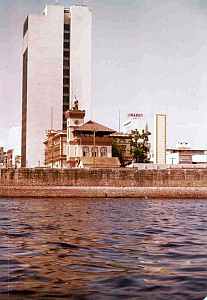 midst of the Amazon jungle. Somewhat typical of many Brazilian cities, this failure to incorporate the local climate and scene into architecture. At least, Manaus is cleaner, less repressive/oppressive than Recife.
midst of the Amazon jungle. Somewhat typical of many Brazilian cities, this failure to incorporate the local climate and scene into architecture. At least, Manaus is cleaner, less repressive/oppressive than Recife.